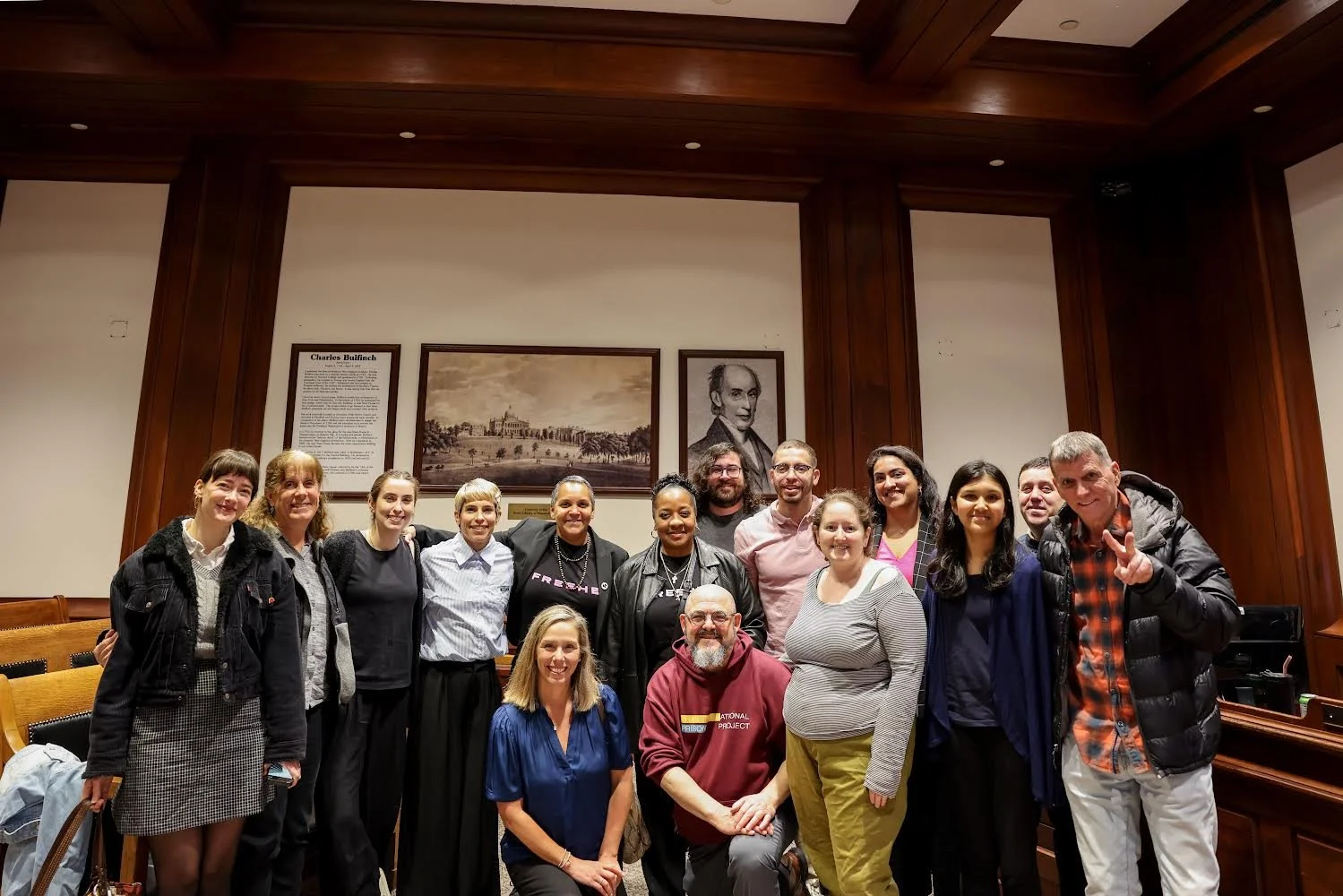Universal Voting Rights (UVR) Team
The Universal Voting Restoration team is mobilizing to end felony disenfranchisement in Massachusetts. The ultimate goal is to change the state constitution through a legislatively-referred constitutional amendment. To do so, we focus on legislative advocacy, a signature collection campaign, and building political organizing power among the most-impacted communities. The most impactful way to disrupt the legacy of slavery is to change policy—restoring the pre-2000 constitutional standard would restore voting rights to over 7,300 incarcerated people in MA, a population that is disproportionately Black and Latinx.
For over 200 years, Massachusetts protected every incarcerated voter's right to cast a ballot. That changed in 2000 when, led by Gov. Paul Celluci, Massachusetts became the 48th state to disenfranchise persons completing their felony sentence inside prisons and jails.
In Massachusetts, an estimated 7,300 people cannot vote because they are incarcerated for a felony conviction. Less than 7% of the state’s population is Black, but 30% of the prison population is Black. Similarly, less than 13% of the state’s population is Latino, but Latinos make up 29% of the prison population
Research supports the link between justice-impacted individuals having the right to vote and reducing recidivism.
For a full timeline of incarcerated voting rights in Massachusetts, check out this report by Emancipation Initiative.
Facts about Felony Disenfranchisement in Massachusetts:
The Universal Voting Restoration team supports efforts to educate lawmakers and the public about the harms of felony disenfranchisement. Our work includes uplifting S. 7 and H. 63, constitutional amendments introduced by Sen. Liz Miranda and Rep. Erika Uyterhoeven, that would make citizens serving a felony conviction in Massachusetts eligible to vote in state elections.
S. 524, H. 873, and H. 874 are accompanying legislation that would make the same eligibility change for local elections and include incarcerated voters as "specially qualified voters.”
National, statewide, and local organizations support these efforts: The Sentencing Project, Campaign Legal Center, Progressive Massachusetts, Partners in Democracy, Families for Justice as Healing, among others.
For more information on the legislation concerning universal voting rights in the Massachusetts Legislature, check out this bill factsheet.

